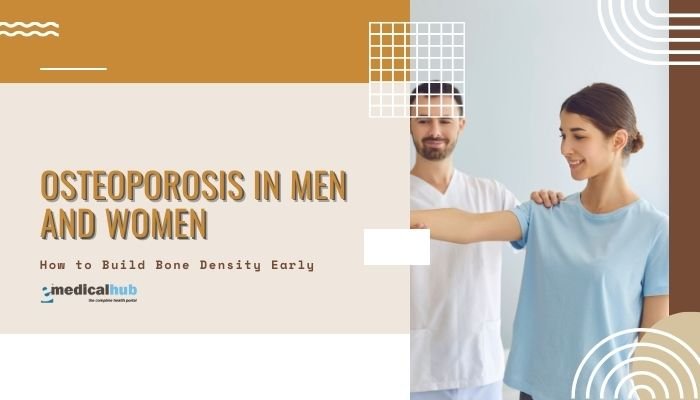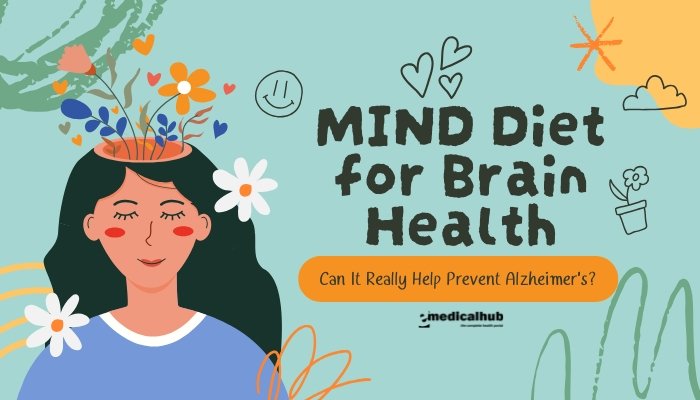Introduction
For decades, dietary advice has been presented in broad strokes: everyone should eat more vegetables, cut saturated fats, and limit sugary foods. While these principles remain valid, an emerging field called nutrigenomics (or nutrigenetics) suggests that there is no one-size-fits-all diet. Instead, your genetic makeup can profoundly shape how you metabolize nutrients, respond to certain foods, and even develop sensitivities or intolerances.

This concept of personalized nutrition aims to tailor eating plans based on an individual’s DNA to optimize health, prevent disease, and manage weight more effectively.
Though still in its early stages, personalized nutrition has gained popularity with direct-to-consumer genetic testing and advanced genomic research. Advocates claim it can identify whether you’re more prone to high cholesterol, lactose intolerance, or insulin resistance, refining your diet accordingly.
But is this approach scientifically robust, or does it overpromise? This article delves into how genetic variations influence nutritional needs, explores the current state of personalized diet plans, and offers practical steps if you’re considering customizing your meals based on your DNA.
Disclaimer: This content is for educational purposes only and not intended as medical or nutritional advice. If you have specific health conditions or questions about genetics-based eating plans, consult a qualified healthcare professional or registered dietitian.
Understanding Nutrigenomics
Genes and Nutrition: The Basics
Each individual’s genome comprises tens of thousands of genes. Certain genes affect how enzymes break down macronutrients (carbohydrates, proteins, fats) and micronutrients (vitamins, minerals). For instance:
- Gene Variants Affecting Metabolism: Some people have variants in genes (e.g., FTO, MC4R) associated with a higher propensity for weight gain or difficulty losing weight.
- Nutrient-Specific Genes: Others may alter how well you absorb vitamin D or metabolize caffeine.
These genetic differences can be subtle but may, collectively, influence your ideal ratio of nutrients or best dietary style.
The Promise of Nutrigenomics
- Improved Dietary Efficiency: If your genotype suggests you metabolize carbs poorly, you might do better with a moderate-carb or lower-carb intake.
- Targeted Prevention: Knowing you’re predisposed to certain deficiencies (e.g., B vitamins) might prompt conscious supplementation or food choices to avert health issues.
- Potential for Personalized Supplements: Some companies formulate vitamins or meal plans based on your genetic profile.
Limitations and Realism
While genetics do play a part, lifestyle factors—like exercise, stress, sleep, and environment—remain crucial to shaping health outcomes. Many single-gene studies are overshadowed by the complexity of multiple gene interactions and epigenetics. So while nutrigenomics can provide personalized hints, it doesn’t provide a guaranteed blueprint for everyone.
Key Areas Where Genetics Affects Nutrition
Weight Management
- Fat and Carbohydrate Metabolism: Certain genetic variants can tilt you toward better or worse tolerance of high-fat or high-carb diets, affecting how easily weight is gained or lost.
- Appetite Regulation: Genes may influence hunger hormones (like leptin or ghrelin), impacting satiety cues.
Still, no single gene absolutely dictates obesity—habits, environment, and overall caloric balance remain dominant factors.
Food Intolerances and Sensitivities
- Lactose Intolerance: A well-known example where a gene variant reduces lactase enzyme after childhood.
- Gluten Sensitivity: Though celiac disease is driven by certain HLA gene variants, many with these genes never develop the condition.
- Caffeine Metabolism: Genetic differences in the CYP1A2 gene can classify you as a “fast” or “slow” caffeine metabolizer, influencing coffee tolerance and cardiovascular risk.
Micronutrient Needs
- Vitamin D Receptor Polymorphisms: Some people might need higher vitamin D intake or sunlight exposure to maintain optimal levels.
- Folate Metabolism: Polymorphisms in the MTHFR gene can hamper folate processing, raising the need for certain forms of folic acid or dietary folate.
Acknowledging these subtleties can help fine-tune dietary guidelines or necessary supplementation.
DNA Testing for Personalized Diets: How Does It Work?
Overview of Genetic Tests
Companies typically offer at-home saliva or cheek swab kits. After sending in your sample:
- Lab Analysis: They analyze single nucleotide polymorphisms (SNPs)—small variants that can affect nutrient metabolism.
- Report Generation: Summaries might say “You’re predisposed to high cholesterol if you eat saturated fats” or “Your caffeine sensitivity is above average.”
- Dietary Recommendations: Advice might include a higher protein ratio, avoidance of certain allergens, or specialized micronutrient suggestions.
Accuracy and Variability
- Different Labs, Different Data: Not all tests interpret the same SNPs or build the same recommendations.
- Quality of Evidence: Some SNP-diet outcome studies are robust, others are preliminary or contradictory.
- Risk of Over-Interpretation: A single gene variant might only slightly raise or lower risk, but marketing can inflate the significance.
Users should interpret these results cautiously, focusing on evidence-backed findings rather than broad, unsubstantiated claims.
Privacy and Ethical Concerns
Genetic testing raises data privacy issues. Consider:
- Data Storage: Check how the company secures or shares your genetic information.
- Insurance or Employer Access: Some fear genetic predispositions might affect insurance coverage.
- Regulatory Oversight: Consumer nutrigenomics is less regulated than medical genetic testing, so do your research on reputable vendors.
Health Benefits and Potential Gains
Tailored Dietary Interventions
If you know your genes suggest poor carbohydrate tolerance, your nutrigenomics-based plan might lean toward a moderate-carb diet, focusing on complex carbs with a lower glycemic index. This could enhance glycemic control or reduce type 2 diabetes risk.
Enhanced Nutrient Utilization
Identifying a variant that impedes B12 absorption, for example, can prompt more targeted supplementation or emphasis on B12-rich foods—potentially preventing deficiency or related complications like anemia.
Motivation and Compliance
Some individuals are more likely to stick with a plan when it’s “personalized.” The psychological factor of having DNA-based instructions can provide an extra push to adhere to healthy changes.
Limitations and Critiques
Complexity of Gene-Lifestyle Interactions
Polygenic influences—many genes working together—plus environment, epigenetics, and microbiome variations complicate attempts at simplistic “diet by genotype” solutions. A single gene is rarely deterministic.
Incomplete Science
While ongoing research is robust, the field of nutrigenomics is relatively young. Some recommended dietary adjustments based on limited or conflicting evidence might not yield measurable advantages.
Cost and Accessibility
Consumer DNA tests vary in price, and the quality of post-test nutritional guidance can differ. Individuals might pay hundreds for a test only to receive generic or incomplete advice.
Risk of Deterministic Thinking
Users might incorrectly think “My genes say X, so I can’t do Y,” ignoring that lifestyle changes (diet, exercise) can drastically modify gene expression. Genes are not destiny.
Building a Personalized Diet with or Without Genetic Tests
Step-by-Step Approach
- Assess Current Diet: Identify where processed foods, sugar, or unhealthy fats might be overshadowing nutrient density.
- Incorporate Basic Guidelines: Emphasize whole foods, lean proteins, healthy fats, produce, and fiber.
- Track or Eliminate Suspected Problem Foods: If you suspect lactose, gluten, or other issues, do a controlled elimination or consult a professional for testing.
- Seek Blood Tests: Checking levels of vitamin D, B12, iron, or cholesterol can yield personalized clues for dietary adjustments.
- Optional DNA Test: If you desire more targeted info, choose a reputable lab. Combine those results with professional dietary advice for maximum benefit.
Balancing Personal and Genetic Insights
Ultimately, personal experiences—like how your body reacts to certain foods—are just as important as genetic predispositions. If a high-protein, low-carb approach improves your well-being and biomarkers, it’s likely beneficial, regardless of genetic data. The synergy of subjective experiences and scientific measures is the best route for refinement.
Future Directions in Nutrigenomics
Multi-Omics Integration
Advanced approaches combine genomics (DNA), transcriptomics (RNA expression), proteomics (protein expression), and metabolomics (metabolic byproducts). This could yield a comprehensive snapshot to determine truly optimal diets at an individual level.
Continuous Biomonitoring
Wearable devices or home labs might track real-time blood glucose or other biomarkers. Coupled with AI analyzing dietary logs, the feedback loop from real-world data plus genetic predispositions can produce dynamic, refined nutritional guidance.
Personalized Microbiome Diets
As the gut microbiome is shaped by both genetics and environment, future personalized diets may incorporate stool analyses, prescribing targeted fiber types or probiotic strains for optimal synergy with your genes.
Frequently Asked Questions (FAQ)
Will a DNA-based diet help me lose weight faster?
Genetic insights can refine your approach but aren’t guaranteed to accelerate weight loss if overall calorie balance or lifestyle factors (exercise, sleep) are lacking. Some studies show modest improvements in compliance or results, but it varies widely.
Can I trust direct-to-consumer nutrigenomics kits fully?
Some are reputable and provide science-based disclaimers. Others might oversimplify or overpromise. Seek companies with validated genetic markers, transparent methodology, and disclaimers about the limitations of genetic data.
Do I still need a dietitian if I have nutrigenomic results?
Often, yes. A dietitian can interpret the data in context, verify strong scientific backing for each gene-nutrient suggestion, and help you build realistic meal plans.
Are there specific gene variants that absolutely require major dietary changes?
Yes, some variants—like those involved in PKU (phenylketonuria) or celiac-related genes—necessitate strict avoidance. But these conditions are typically well-understood clinically. For more nuanced genes, recommended changes might be subtle.
If my genotype suggests normal caffeine metabolism, can I drink unlimited coffee?
Genetic data is one factor, but high caffeine can still raise anxiety or disrupt sleep. Moderation remains wise.
Conclusion
Personalized nutrition – gleaned from your unique DNA – is part of a forward-thinking paradigm in dietary science. As nutrigenomics research expands, it’s becoming clearer how genetic variants can influence responses to carbs, fats, vitamins, or caffeine, among other nutrients. For some people, this knowledge helps optimize meal planning, prevent deficiencies, or manage weight more effectively.
Nonetheless, the field remains in its early stages, and overreliance on partial data or incomplete test interpretations can be risky. Genetics alone doesn’t override the fundamental lifestyle pillars of healthy eating patterns, regular exercise, sufficient sleep, and mindful stress management. If you’re intrigued by the notion of “eating right for your DNA,” combining reputable genetic testing with professional guidance (dietitians, doctors) and a balanced approach is key. Regardless of the genetic blueprint, a diet based on whole foods and mindful eating will likely remain the backbone of long-term health and vitality.
References
- Corella D, Coltell O, Sorlí JV, et al. Advances in shaping nutrigenetics/nutrigenomics with consumer omics. BMC Genomics. 2017;18(Suppl 8):964.
- Livingstone KM, Celis-Morales C, Lara J, et al. Changing from traditional dietary guidelines to individual diet recommendations based on genetic testing. PLoS One. 2016;11(8):e0160726.
- Ordovas JM, Ferguson LR, Tai ES, et al. Personalised nutrition and health. BMJ. 2018;361:k2173.
- Phillips CM. Nutrigenetics and metabolic disease: current status and implications for personalised nutrition. Nutrients. 2013;5(1):32-57.
- Horne J, et al. A systematic review of the adoption of genetics and nutrigenomics in nutrition curricula worldwide. Adv Nutr. 2019;10(6):1159-1171.
- Ordovas JM, et al. Nutrigenomics and nutrigenetics in functional foods and personalized nutrition. Curr Opin Clin Nutr Metab Care. 2017;20(6):395-399.
- Bishop KS, Ferguson LR. The interaction between epigenetics, nutrition and the development of cancer. Nutrients. 2015;7(2):922-947.
- D’Adamo P, Whitney C. The genotype diet: A novel nutrigenomics approach or marketing hype? Crit Rev Food Sci Nutr. 2014;54(14):1759-65.
- Barrea L, Annunziata G, Muscogiuri G, et al. Could nutrigenomics and nutrigenetics help in the detection of the best diet for obesity? Nutrients. 2021;13(5):1501.
- USDA. Dietary Guidelines for Americans 2020-2025.
- American Heart Association. Fish and Omega-3 Fatty Acids.
- CBC. Genetic-based diets. 2022.






